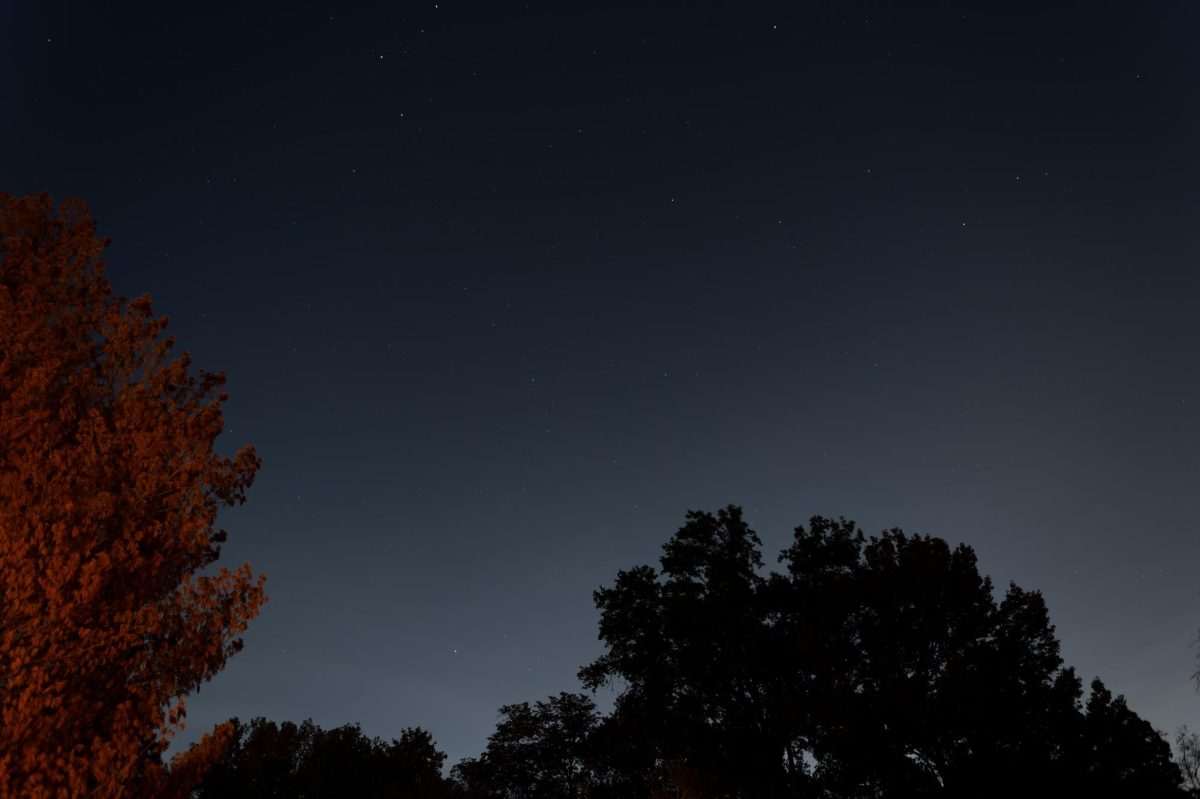Finding peace and solitude is a difficult task, but one good pastime for when you are alone is stargazing. Once the sun goes down, searching for constellations and using them to map the sky can give you something to do for hours.
It can be hard to be a homebody when most of your peers are enjoying a night out with friends, but bundling up on a blanket in the grass and appreciating the stars is a quick remedy to feeling excluded. Being in a peaceful and comfortable place with a beautiful background makes stargazing an easy activity to enjoy and romanticize.
Stargazing is also immensely beneficial for cultivating mindfulness. On a stressful night, the mere act of looking up can alleviate anxieties and quiet the mind. After all, it’s hard to think about other things when the beauty of the universe is right before your eyes.
Though the peaceful aspect of stargazing is more achievable when alone, you can also invite friends to share the silhouettes made by the stars. With mugs full of hot chocolate and marshmallows roasting on a bonfire, a late night picnic is a great way to spend a night in.
Whether you are alone or with loved ones, stargazing is a relaxing way to take advantage of the darkness. When most opportunities for nature lovers are during the day, this hobby is an amazing addition to the average night owl’s agenda.
Leo
Leo is one of the 13 zodiac constellations and one of the largest in the northern sky, especially in the fall. Leo represents a lion and is often times associated with Greek mythology.
Pisces
Pisces is another one of the 13 zodiac constellations. The name “Pisces” is the Latin plural for “fish.” Though it is fairly large, the stars that form it are faint, making it hard to see with the naked eye.
Orion
Orion is a constellation that gets more noticeable as the winter months approach. This grouping of stars is on the celestial equator so it is one of the few constellations that can be seen all over the world.
Cygnus
Cygnus is one of the most recognizable constellations in the northern hemisphere. This constellation’s name, “Cygnus,” originated from the Latinized Greek word for swan.
Cassiopeia
Cassiopeia is a constellation named after Queen Cassiopeia, known for her vanity in Greek mythology. The best time for viewing starts in late fall, so now is the perfect time to take a look.









